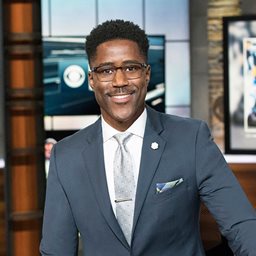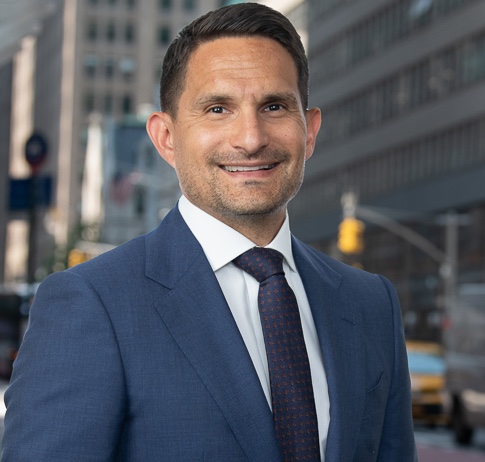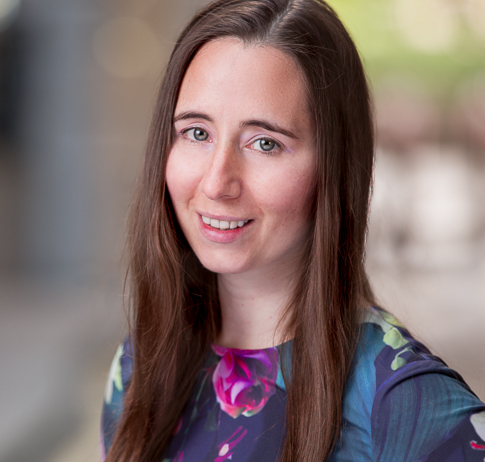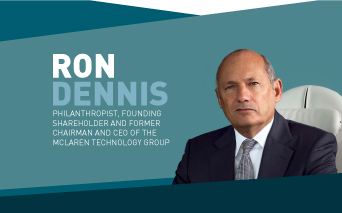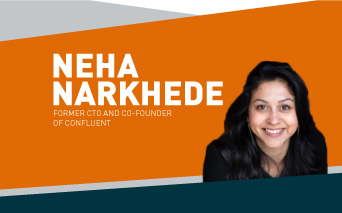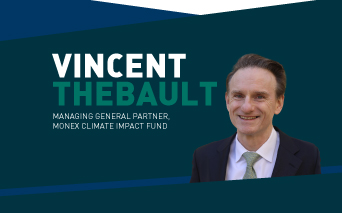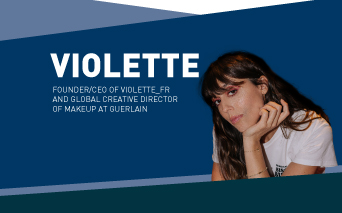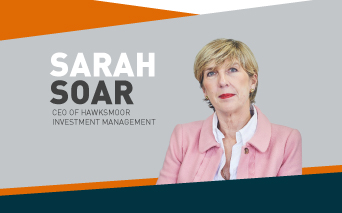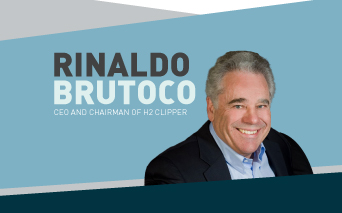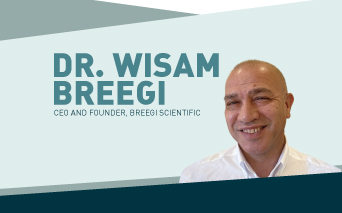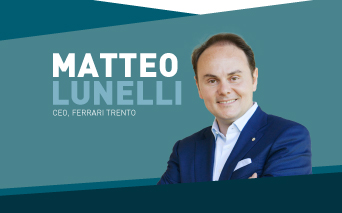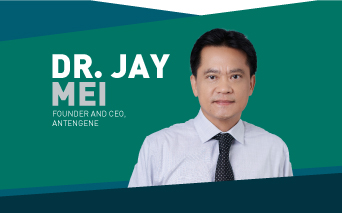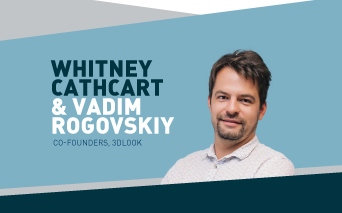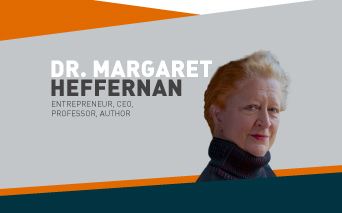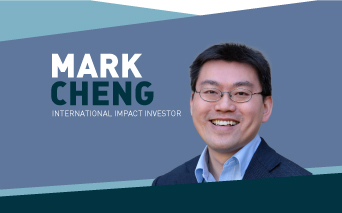Podcast
Football, career transitions and stepping outside of your comfort zone
15 November 2021 | 29 minute listen
Episode 7 of Talking Success with Aasmah Mir
Aasmah talks to Nate Burleson, former National Football League (NFL) player and TV host, about how his natural curiosity and creativity have led him to transition smoothly through various careers, from professional American footballer to fashion designer and Emmy award winning sports personality, and about the importance of pushing your boundaries to achieve success. To hear more stories of success, click here.
Podcast host: Aasmah Mir
Aasmah Mir is an award winning broadcaster and journalist. She currently co-hosts the Breakfast Show on Times Radio and writes a regular column for The Times.
Guest: Nate Burleson
Nate Burleson is one of the most charismatic, genuine, and popular media personalities. He currently works for a variety of outlets including CBS, NFL Network, Nickelodeon, and UNINTERRUPTED.
Nate was an 11-year NFL veteran (Lions, Seahawks, & Vikings) wide receiver and returner who became a fan favourite in every city that he played. His off-camera passions include his family, faith, fashion, and music, as well as being a serial entrepreneur.
Nate is married to his wife, Atoya, and they have three teenage children: Nate Jr., Nehemiah, and Mia Pearl.
Note: We have provided a transcript of the discussion in this podcast if you are unable to listen to the audio version. This transcript is generated using a combination of speech recognition software and human transcribers and may contain errors.
Aasmah Mir (00:26) Welcome to talking success with Aasmah Mir in partnership with Withers, the international law firm. I’m Aasmah Mir, and this is a series where successful people reveal the defining moments of their careers and indeed their lives. In the last series, we learned that crunch points can take many forms. Dr Wissam Breegi recalled desperately kindling a fire to keep his newborn baby warm. Margaret Heffernan painted a vivid picture of chasing after an uncooperative rabbit. This series we’re hearing from a wide array of guests, and I can guarantee there’ll be a whole lot more startling and illuminated insight because we all face moments of crisis, it’s how we respond that makes all the difference.
Nate Burleson (01:06) And it all changed, just like that. I just knew that being injured was going to derail our chances and it did, and that’s when I had to make a decision – what next?
Aasmah Mir (01:15) In this episode, I’m speaking with Nate Burleson. Nate played professional American football for 11 years. In 2013 his career took a turn when he was injured in a car accident. Since then, he has had a glittering career as a broadcaster and entrepreneur. He co-owns multiple clothing brands and is a host on Good Morning Football and the NFL Today, and he’s just won two Emmys. Nate, thank you so much for joining me.
Nate Burleson (01:44) Of course, thank you for having me.
Aasmah Mir (01:45) I’m going to begin with one of our big questions, which is actually a short question. Is there a quote or a song lyric that you sometimes think about when things get tough?
Nate Burleson (01:54) There’s actually one quote and one song lyric. The quote I read in high school, and it was simply ‘if better is possible, than good isn’t enough’. And then the lyric is by Jay-Z, who is world renowned… I like to call them a poet rather than a rapper, and it’s the first line of his song, PSA, and it has allowed me to reintroduce myself. I love that because I feel like I try to reintroduce myself almost on a daily basis, and it’s benefited me up to this point. So, when I know that I’m falling into a place of complacency, or if I feel like times are dark or I need to get over an issue, I just reintroduce myself. In other words, reinvent myself and try to figure out a way to approach it from a different angle.
Aasmah Mir (02:56) That’s fascinating stuff. Did you, Nate, always know that your life would involve football or was there a moment when you thought this, this is where I need to be?
Nate Burleson (03:10) I was your typical kid that loved sports. I would, you know, walk around talking about the NBA or the NFL, but I wasn’t that talented as a kid. I was very creative, very artistic, I loved TV, I loved performing, and so the space that I’m in now, I’m more familiar with than I was as a football player. Football was… it was what I did, it, wasn’t who I was, which is why I have so much comfort in the space that I’m in being in media, because when I was a child, I felt like, you know, my life was a performance. If you would’ve talked to me as a youngster, I would have told you that I was going to be some type of artist. I remember thinking I was either going to be a poet or a painter, and then one day I woke up and I was faster than the average kid and I could jump a little bit higher, and then I ended up playing three sports and scholarships came and then after, you know, the NFL knocked on my door, I just thought to myself, I’m going to stay in this lane for as long as I can, try to make as much money as I can, and then after that, figure out what I’m going to do with the rest of my life.
Aasmah Mir (04:19) And do you think it helped that you weren’t single minded, you weren’t focused on one thing and one thing only, and nothing else would do from an early age?
Nate Burleson (04:31) Yes, I believe that’s a strength that I have, you know, I played football and basketball and I ran track, I even tried my hand at baseball, and if you know, if golf was offered in my community, black community where I grew up, I probably would have golfed, but you know, we didn’t have that, if lacrosse was offered, I probably would have tried that. I was always curious about what I was able to do, so you never know what you’re good at until you try a bunch of different things. So, as I got older, I didn’t see myself as an athlete, I just saw myself as a very well-rounded kid that happened to be athletic.
Aasmah Mir (05:08) Mmm, and what about the fact that your dad played football too? Did that influence you one way or the other?
Nate Burleson (05:14) It influenced me to play, um, just like my brothers and my friends influenced me to play, you know, as a kid, I didn’t like football. I didn’t like American football, because it was too physical for me, you know, I was skinny, I wasn’t the strongest or the fastest kid. I remember the eighth grade year season was around the corner, my dad goes out and he buys me a new helmet and shoulder pads, all the gear that I need, new cleats and days before I said dad I don’t want to play football because I did not… I did not like it at that point, it was more work than it was fun, and I remember my dad driving to practice after me changing my mind a week, and he’s like, alright, Nate, look, I just got off work, I’ll take you if you want me to, but if you’re going to commit, you’ve got to commit to it. We got out there, I sat in the car, I looked at those kids and I said, I’m sorry, I changed my mind, I don’t want to play. And as a parent, I realised how infuriating that was for my father, but in that moment he kind of gritted his teeth and he’s like, Nate, I just drove you all the way out here, I’m tired, you’ve changed your mind a few times, are you sure you don’t want to…? I said, dad, I don’t want to do it, I’m sorry. And I respect my dad to this day because he didn’t say, you know, get your butt out this car and go play, you have to play. I knew he was disappointed, but he turned around and drove back home and I didn’t play that season.
Aasmah Mir (06:49) You weren’t ready?
Nate Burleson (06:50) I didn’t realize how much I loved it until I spent one year away from it. That was like my gap year from football. And then that following year I went into high school and my dad asked me, are you going off to football? And I said, yeah, I missed it, I want to play. And I went out there and I loved it.
Aasmah Mir (07:02) Let’s move on and talk about what must be the most pivotal moment in your adult life, and that was the car crash.
Nate Burleson (07:10) Yeah, that was… that was another moment for me where, you know, my life could have went in many directions, to say the least. For many reasons I feel like I’m blessed. My ability to bounce back after being hurt or injured is, I think, at the top of the list. But in that one moment, I remember having a great game that Sunday, that following Monday, I’m back in Detroit, where I’m playing and I’m feeling good about life, I’m thinking to myself, this is going to be a career year, my stats are through the roof right now, I have a great rhythm with my quarterback, everybody’s praising me, and it all changes just like that. I’m driving, I see this car, it hits the brakes and instead of me stopping and letting all this food and pizza crash up against the floorboard, I reached for the pizza and it turned the wheel, and then I tried to correct it, and I over-corrected it, as I’m fish-tailing on this wet freeway, and I just hit the concrete medium in between the two roads, and I remember kind of like coming too, waking up and I couldn’t get out of my door because it was completely shut due to the car being crunch. I climb over, I get out the other side and I’m looking at my legs and I realise my legs are fine, I mean that’s my money-makers – I’m a receiver, I got to run really fast, I got to avoid the big guys from taking me down. Then I look at my hands, my right hand is moving a thousand miles a minute, and I’m like, okay, alright we’re good. And then, I started to move my lift and it’s moving so slow, I just thought to myself, why is this moving so slow? And I had a sweater on, so I pull my sleeve back and these two bones, the Radius and the Ulna were completely displaced about an inch, and I remember thinking to myself, why doesn’t this hurt and why am I not more worried? But then out loud, I said, I just f***ed up our season, because that’s all I thought about was the team, we got this season, I mean, we could really shock some people and possibly win a Superbowl, and me being a big part of the team, I just knew that being injured was going to derail our chances, and it did. That’s why I was so disappointed in that moment. But then after that I realised the end was near. So even though I was still playing, and I came back that year, I remember scoring some touchdowns and my agent saying, ‘You got some more years to play. I mean, you got teams that will pay you some big money’. I just thought, ‘I need to start planning my next chapter’ because the light at the end of the tunnel, which used to be so small at the beginning of my career, was brighter than ever. And I knew that I was at the end,
Aasmah Mir (10:06) But how did you, how did you process that? I mean, you say that you felt you were kind of approaching the end anyway, but still to be in that position, you know, at the top of your game, pivotal to your team, and then it’s kind of taken away from you.
Nate Burleson (10:25) Yeah.
Aasmah Mir (10:26) How did you process that? How long did it take you to process that?
Nate Burleson (10:26) It took a while to admit that my career would end soon, but there’s divine intervention where I feel like everything that happens, whether it’s positive or negative, it’s a message from your higher power. So, in that moment, I felt like I was being told this chapter in your life is going to end soon, start writing a new chapter. And on the flip side of it, instead of panicking and being upset and hating the fact that my career could be ending soon, I started to become more and more thankful that it lasted so long. And I was blessed that the average in the NFL is at the time two and a half, three years. And I made it at 11, you know, three different contracts, you know, I was able to save and invest my money wisely. So, I was thankful for, you know, having that journey and walking away, fairly healthy, with my wits about me, and also having a nest egg that not only I can live off, but the generations after me can live off.
Aasmah Mir (11:39) But I’m sure for you, it wouldn’t just have been about the money. Although, you know, financial security of course is important, it’s also about, I don’t know, your sense of self, your sense of purpose. Well, how long did it take you to work out what were going to do next as a career?
Nate Burleson (11:56) It didn’t take too long. I had some relationships already established in the media world. I was one of those players who in the off season would go visit networks, be an analyst on a show. And I wasn’t getting a cheque for it, but I was getting reps and I was also meeting producers and execs that were decision makers. Um, and I did that from the very beginning of my career, 2003, all the way up until 2014. So, by the time I retired, I knew if I wanted to go into TV, there were people that I could call, you know, and also having an experience as a restaurant tour, owning my restaurant while I was playing in Seattle, I’m launching a few clothing lines being the creator of a financial institution that helps athletes invest their money. These were all things that I was doing while I was playing. So, I had options. The question I had to ask myself, what did I want to do after I was done? Because it’s a huge void in an athlete once they get done playing, because you’re living a rock star lifestyle, you travel around like a rock star, you have money in your pocket, you go to a stadium and you score touchdown, and 70,000 people rise to their feet. You truly do feel like the coolest thing, but when it’s all done and you are working a job that doesn’t fulfil that same type of void, it’s difficult. So, I had to think to myself, ‘Do I want to go full-time into clothing? Do I want to be a restauranteur again? Do I want to travel the world and not work? Or do I want to go into TV?’ And I thought, because I am a natural creator, that’s just what I am, and I think that’s why I found comfort in this space.
Aasmah Mir (13:42) I mean, obviously we’re talking about the same kind of area, but are there any kind of transferable skills when it comes to playing and commentating?
Nate Burleson (13:53) Yes. Being able to co-exist with others. If I’m on a show with three other hosts, I have to be able to co-exist with them, not only be good when I have the microphone, but also be the best supporting actor when it’s their time to speak. That’s what football is. And I made a living off of that. I made a living off of being a good football player and an even better teammate. There’s also the element of improving day by day. I’m constantly being coached as a player is something that we’re used to. One thing we can do is compartmentalise how somebody is criticising us, and then apply it to whatever we’re doing, apply it to practice, apply it to the football field, apply it to a game. In media, I do the same thing. I can hear producers say, ‘Hey, Nate, you wasted a little bit too much time getting to the point. I need you to be more concise’. Gosh, I understand that. I’m not going to get in my feelings, get upset that you’re criticising me, I’m going to hear exactly what you said and I’m going to make myself better because of it.
Aasmah Mir (14:56) You say that you are a creative person. Is that what drew you also to the clothing side of things?
Nate Burleson (15:04) Yes. Every clothing line that I have started, it started because I wore something and then I got a response out of it. You know, when I’m walking around with a design that I created, somebody walks up to us say, ‘Hey, what’s the website?’, I’ll go create a website, I’ll go trademark that. And the same thing happened with suits. I met a designer out of Vancouver, Canada, and I was walking in the streets of Vancouver after a Drake concert. And I was on my way to a bar. I said, ‘Man, you got a nice suit on’. I said, ‘Yeah, I love suits. You know, I’m a big fan of men dressing up instead of always dressing down’. And he’s looking at me, he’s like ‘Nate Burleson, I know who you are, I’m a fan’. We exchanged numbers, and I tell him, I said, ‘Look, I’m on my way to the bar. I’ve already had a couple of drinks, but in case I forget this conversation, call me in two weeks and let’s talk about doing a suit line in the US’. And he called me in two weeks, and we created Banes & Baker, which is a suit line that is his baby, and I just put my seasoning on top of it because I’m one of the most, one of the most visible clients and partners that he has.
Aasmah Mir (16:40) I love the idea of seasoning on a baby. I don’t know if that’s a good idea, but anyway, I get what you’re saying. When you are creating something like clothing, it’s, it’s a long process, isn’t it? Yeah.
Nate Burleson (16:35) Yeah, yeah.
Aasmah Mir (16:36) And obviously when you were doing the football, you’d be training it’s long project, but you’re still getting to do things kind of week in, week out. Did you find it frustrating at first, that it was a kind of long – longer process and you had to learn to be patient, or were you already?
Nate Burleson (16:44) Yeah, I, you know, I learned to be patient in the retail side of things, you know, it’s easy for me to draw something up, send it to my digital team and say, ‘You know what? I want to wear a tux with jogger bottoms and make it seem casual’. And you know, my design team saying, ‘Well, that’s not really traditional, people don’t make tuxes like that’. But then you see other people wearing it, other designers do it. I remember LeBron wearing it during the playoffs some years back, and it was after I wore shorts on the red carpet. And everybody’s like, ‘Oh, wow. Look at LeBron’. And I’m like, ‘Wait a minute. I did this a year ago and I was getting criticism’, but there’s, there’s joy in it. Whether people like it or not, they recognise the fact that you are being unique. And I think that’s the, that’s my favourite part about fashion, and creating a clothing line.
Aasmah Mir (17:37) When you are making those kinds of decisions that you talked about there with the creative team, what’s your decision making process? Do you have a kind of right hand man or woman who you really trust, or is it a gut instinct with you?
Nate Burleson (17:54) It’s more a gut instinct. When it comes to the clothing, you know, there’s two guys that I lean on, Mark Roland, he’s my partner when it comes to the shirts, he’s the founder of One-seat Apparel, along with myself. And then with the suits, completely different brand Banes and Baker, is Robbie Pun, who is the guy that I come to and I say, ‘Hey, I want to try this’. And he’s always like, ‘What? Are you sure?’ And I’m like, ‘Yeah’. And when it comes to investing in things, my financial team, which is of course a completely different group of individuals, three red flags and we’re out. We kind of adopted that over time. But when it comes to creating things, I don’t look at red flags. You can’t take somebody else’s red flag for fashion because fashion is like taste buds. If I would have listened to a lot of people that told me not to do certain designs, then the majority of the popular pieces we’ve done over the last few years, they would have never hit the market, and they would have never been duplicated or copied by bigger brands. Fashion is ever evolving, and oftentimes you have to take a risk if you want the reward.
Aasmah Mir (19:01) Absolutely. Throughout your whole career, is there a particular decision that you really did not enjoy making?
Nate Burleson (19:09) Yeah. I remember an investment that I made in a product, you know, just real quickly, the idea was taking a bottle of liquor and putting a scale underneath and measuring how much is gone by the time it’s placed back down at a bar or a restaurant and I thought this was a genius idea being that I owned a restaurant and I know how much money disappears at the bar. I just thought this is going to save millions if not billions in the bar and restaurant industry, but the individual running the company, he basically ran it into the ground and instead of us investing in the product, we were giving the money to a guy who was investing in his own ego. That was one of the biggest regrets, but it was one of the biggest learning experiences of my life – to invest a significant amount of money and it to go nowhere and then have to stand in line to sue in order to get your money back. It was like I was living in an episode of American Greed and I learned a lot from it. I really did. And it made me a better businessman because of it.
Aasmah Mir (20:16) This is quite a difficult question, but I wonder if you had to pick one moment again in your entire career, your entire adult life, when did you feel your most successful?
Nate Burleson (20:31) That’s a tough question. I recently won two Emmys and you know it’s a big deal in the sports space. I had moments in my career where I felt like I was a really good athlete and nobody could stop me, I’ve had moments in my career where I got a big cheque and I’m like I can’t believe the NFL is paying me this much money. I’m saying all of these different moments because you would think one of those moments would be it – something that I would point to and say I felt successful then, but the moment I left the game, got a job in media, was more aware and educated on what I wanted to do financially moving forward and having an understanding that I’m not only going to be rich in this lifetime but I can create generational wealth for my grandkids that’s when I felt successful. But not only having that understanding but knowing that if I raise my kids right, then I will put them in a position to create even more wealth for themselves and not lean on the money that I have stacked up.
Aasmah Mir (21:46) What’s next for you? Are you going to add another string to your bow?
Nate Burleson (21:49) Yeah, it has already happened. I want to continue to establish my footing in the financial support space for athletes, you know I still feel like we can do a better job of educating these young athletes who are instant millionaires and have a lack of education on just the totality of understanding money, and I’m talking about having a profound understanding of the money you’re making and what you can do with it if you make the right decisions. But then also I do think acting is around the corner. You know, I was one of those kids who modeled and I was a child actor, you know, I was in like one of those after-school special movies and my mom, she wants me to be an actor. Every time I talk to her she’s like, have you signed on to do a movie yet son? And I’m like, no mom, not yet. But what’s funny about that is when I first left the game, they were like, oh an athlete – let’s send him some scripts, let’s get him in a movie or a small role in a show. And I just thought, well, I don’t feel like I’d be able to spread myself that thin but now that people recognize the work that I’ve put in in the media space, I don’t think it would be a shocker if I went in and grabbed a small role in a movie or a show. At this point in my life, it would probably be the most challenging thing I can do and if you’re not challenging yourself whenever you have the opportunity to are you really living?
Aasmah Mir (23:17) That’s a really interesting thing. Do you think that you would ask yourself that question if you had not been an athlete at the level that you were at?
Nate Burleson (23:24) I believe so. I’ve always been that guy that wanted to try things because they were difficult. I remember my mom saying to me when I was very young ‘you adapt well’ and I was like seventh grade – I think we had moved and I was in a different school and I was just like, let’s dive right in, and that’s always been my personality and I tell my kids that all the time. Sometimes you have to be comfortable with being so uncomfortable because a breakthrough, it has to be around the corner. It has to be. That’s the only reason I landed in New York when I was done playing football I was working in LA – I was living in Scottsdale, Arizona, flying to LA – a quick flight, life is good, and then out of nowhere these execs say hey we have this opportunity to host a show in New York. And I’m like, no, I’m not moving to New York are you crazy, across the country? And it’s a morning show? I hate waking up in the morning. Like the morning should be abolished. And I just told myself no, I’m not doing it, there’s no way, no how. And I remember even telling my wife and she’s like yeah that’s ridiculous – you waking up in the mornings and moving to New York, we’re not even like New York people. And I remember walking into the bathroom, looking in the mirror and I was like you’re a liar if you don’t take this job. You’re a liar because you constantly tell your kids be comfortable with being uncomfortable and you go and speak to schools and juvenile centers and you tell them like you know that you have to push yourself, push yourself to a place where you’re stepping outside of your comfort zone. And I was like this is bad for you. Like you spent 11 years sweating and bleeding and breaking bones and tearing ligaments and pushing yourself to the limits to be great at football, now you don’t want to be great as a TV personality because you’re scared of New York and you don’t like the mornings. This is a real conversation I am having with myself in the mirror. I walk outside that bathroom, I walk up to my wife and she’s standing in the kitchen and I say ‘hey we’re moving to New York and I’m gonna take this job’. She’s like what, wait, what? They haven’t even offered you the job officially, they haven’t even offered you money, the negotiation process hasn’t even started and on top of that we just bought this home in Arizona. Life is good, what are you talking about? And I was like yeah but if I don’t take this job, I am contradicting everything I say to our children and on top of that, if I don’t take this job, for the next 15 years I’m just going to be a football player talking about football, instead I can go to New York and be a host. A football player turned host is a lot different than a football player talking about football.
Aasmah Mir (25:58) Oh yes absolutely, and listen I’m with you – I think in the morning should be abolished because I have to get up at 3am every morning and it should just be illegal, that’s what I have to say on that matter.
Nate Burleson (26:10) It should be Illegal I agree.
Aasmah Mir (26:11) It should be. It’s just wrong! Okay I’ve got some lighter, very quick fire questions to end on, so just like one word answer – which two traits that you have would you wish upon your children?
Nate Burleson (26:25) Relentless work ethic and empathy.
Aasmah Mir (26:31) Which two do you hope they will not inherit?
Nate Burleson (26:36) Um,
Aasmah Mir (26:37) Only two now.
Nate Burleson (26:38) I know that’s alright – insatiable desire to take over the world and the lack of awareness to take care of self.
Aasmah Mir (26:50) Which one piece of advice would you offer other people in your industry?
Nate Burleson (26:54) reps – reps, reps, reps – and most of the time in the beginning, those reps aren’t going to get you paid.
Aasmah Mir (27:01) What is something that you’ve changed your mind about in life?
Nate Burleson (27:03) How long I want to work for? I’ve made enough money to retire but I just feel like there’s so much space and opportunity and money out there that why retired now.
Aasmah Mir (27:15) What do you think the biggest misconception that people have about you is?
Nate Burleson (27:20) That I’m a talker when I’m not talking, I’m a fairly quiet guy.
Aasmah Mir (27:23) And which one word would sum up your working style?
Nate Burleson (27:31) Lion. It doesn’t describe it, but it sums it up if you know what I mean.
Aasmah Mir (27:35) Yeah absolutely. Nate Burleson, thank you so much, it’s been an absolute pleasure.
Nate Burleson (27:40) Thank you – I had fun. I really did enjoy this conversation.
Aasmah Mir (27:46) I am so glad. I really love what Nate said about just always pushing yourself and not being complacent and being very alert to complacency. The minute you feel like you’re coasting, that you should change up, do something different and really challenge yourself, I think that’s a lesson that many of us can take in our lives and also I just thought it was hilarious the way he said that you know if you don’t do this, if you don’t practice what you preach to your children then you are a liar. And I think, you know, I’m all for people fighting against their kind of hypocrisy so I really loved that too.
Thank you for listening to talking success. You can find out more about Withers on their website: withersworldwide.com. If you’ve enjoyed what you’ve heard please follow us on your podcast app to get updates on the latest episodes or leave us a review. Next week, I’ll be talking to Michelle Chan about growing up between two cultures, working in Silicon valley in the early days and launching her own brand of skincare products. Talking success is a Feast Collective production – the producer is Leo Schick, the executive producer is Kate Taylor and I’m Aasmah Mir, goodbye.
